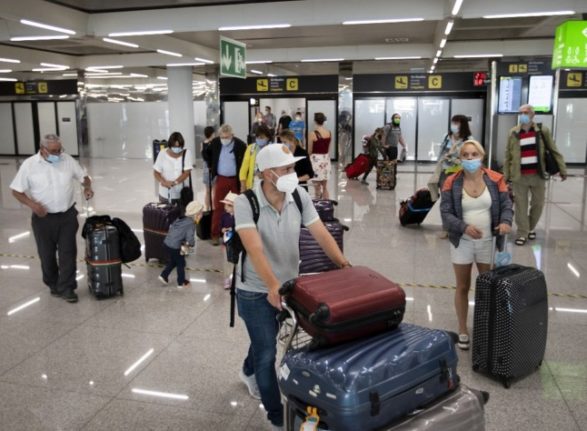The Spanish government on Monday chose not to renew the quarantine requirement for arrivals from the non-EU nations on its highest risk list due to their Covid epidemiological situation.
For varying time periods, travellers from Argentina, Bolivia, Colombia, Namibia and South Africa were not travel to Spain except for exceptional reasons, and even if they were vaccinated, had to remain at their address or accommodation in Spain for ten days and limit their contact with others and movement to the strictly essential.
The ten-day quarantine could end earlier if the traveller got a negative NAAT or similar test result on the seventh day after landing in Spain.
The news effectively means that Spain is now a quarantine-free country for all international arrivals.
With the emergence of Covid-19 variants in February 2021, Spanish authorities even went as far as banning all travel from Brazil and South Africa, a restriction which was lifted and replaced with a quarantine requirement in late July.
Travellers from Argentina, Bolivia, Colombia and Namibia were not banned from travelling to Spain but were added to the quarantine list in late July as well. India, which had originally been on the quarantine list, was taken off at that time.
The criteria used by Spain to put a country on its high risk list is the same as the EU: high infection rate, R number, the rate of testing and vaccination.
Travellers from these six nations still have to factor in that non-essential travel to Spain (such as tourism) is still not allowed for unvaccinated tourists or those with vaccines not recognised by Spain.
READ MORE:
- Which Covid vaccines does Spain accept for international tourists to visit?
- Spain extends restrictions on non-essential travel from most non-EU countries until October
Those who are allowed to travel (Spanish nationals, residents and others with justified reasons) have to meet the same requirements as most other non-EU nations: proof of vaccination with EMA or WHO-approved vaccines or proof of negative PCR taken within 72 hours before travel to Spain. They also have to complete a health control form before flying to Spain.
Unvaccinated non-EU/EEA travellers (except for those from countries Spain doesn’t have on its risk list) have to prove duly accredited reasons such as being students, health or diplomatic staff, hold a long-term Schengen visa and other imperative reasons that are listed here. They also have to provide a negative NAAT test (PCR, TMA, LAMP or NEAR) taken within 72 hours before travel to Spain.
READ ALSO:



 Please whitelist us to continue reading.
Please whitelist us to continue reading.
Member comments